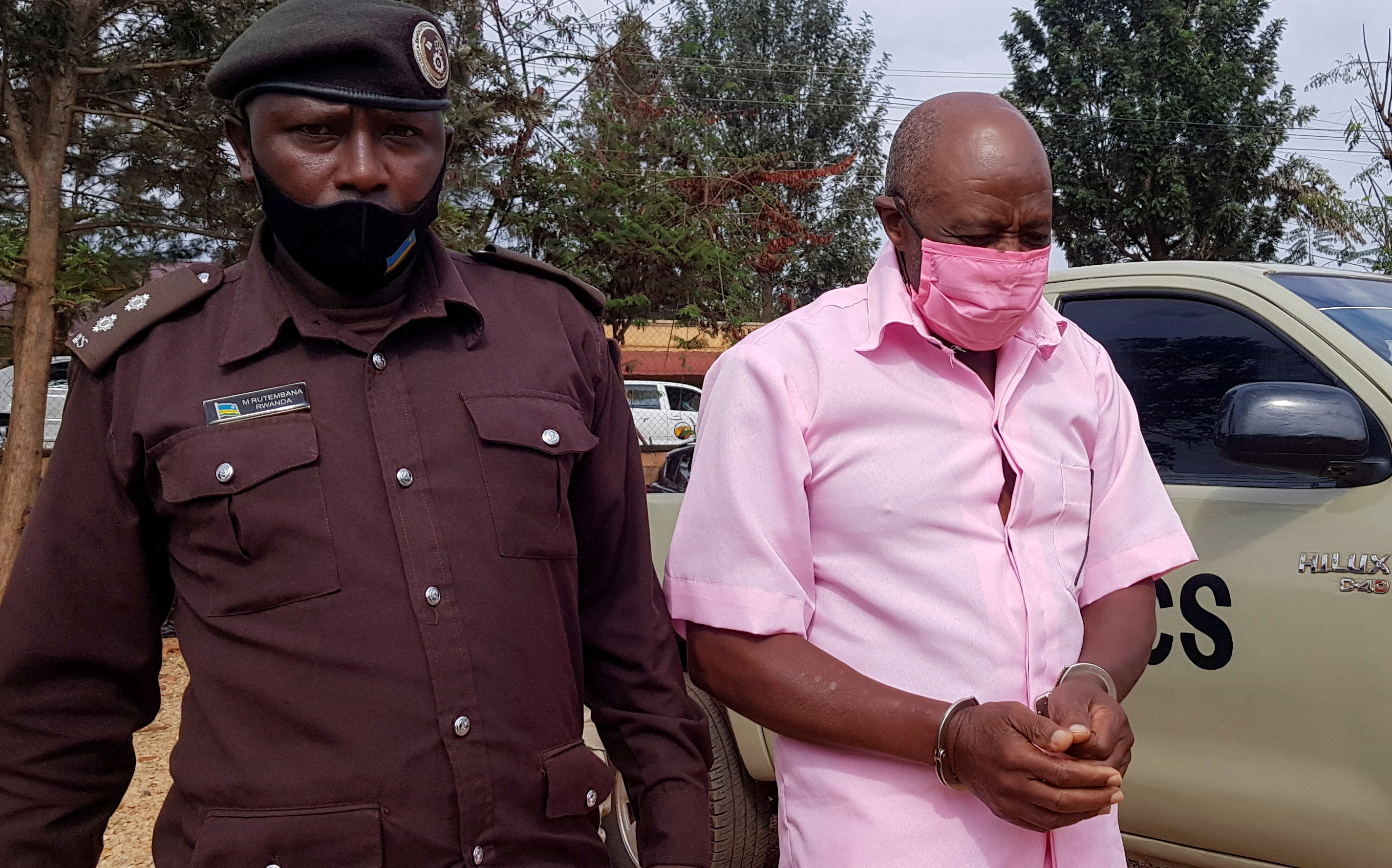Paul Rusesabagina, who was portrayed as a hero in the Hollywood film “Hotel Rwanda” about the Rwandan genocide, and is serving a 25-year sentence on terrorism charges, will be released early on Saturday, the Rwandan government said.
The announcement that his sentence had been commuted followed intense diplomacy by the United States, where Rusesabagina has permanent residency.
Washington’s historically close ties with Rwanda have been strained by the case and by U.S. allegations, denied by Kigali, that Rwanda has sent troops into neighbouring Democratic Republic of Congo and supports rebels there.
Stephanie Nyombayire, spokesperson for Rwandan President Paul Kagame, tweeted that the release was “the result of a shared desire to reset US-Rwanda relationship”.
Rusesabagina, 68, was sentenced in September 2021 over his ties to a group opposed to Kagame that has an armed wing. He denied the charges and boycotted the trial, which he and his supporters called a political sham.
He also said he had been kidnapped from Dubai in 2019 and returned to Rwanda by force. Kagame denied any abduction, but suggested Rusesabagina had been tricked in Dubai into boarding a plane to Rwanda.
Washington designated him as “wrongly detained”, partly because of what it called a lack of guarantees of a fair trial.
A U.S. congressional aide familiar with the negotiations, who declined to be named, noted that the case had resonance far beyond Africa, adding: “I think it became clear to the Rwandans that this irritant was not going to go away.”
“Hotel Rwanda” portrays Rusesabagina’s successful effort to save more than 1,000 refugees including his family during the genocide in 1994 by sheltering them in the besieged hotel that he managed in the capital Kigali.
RUSESABAGINA REGRETS
Rusesabagina, a vocal critic of Kagame, acknowledged having a leadership role in an opposition group, the Rwanda Movement for Democratic Change (MRCD), but denied responsibility for attacks carried out in Rwanda by its armed wing, the Forces for National Liberation (FLN).
The trial judges said the two wings of the group were indistinguishable.
In a letter to Kagame, dated Oct. 14 and released on Friday by the Justice Ministry, Rusesabagina wrote: “I regret not taking more care to ensure that members of the MRCD coalition fully adhered to the principles of non-violence.”
He wrote that if he was pardoned and freed, he would spend the rest of his days in the U.S., “in quiet reflection”.
Rusesabagina is expected to be freed on Saturday with 19 others whose sentences were likewise commuted, government spokesperson Yolande Makolo said.
Makolo said the underlying conviction remained in force; the Justice Ministry said this meant those whose terms had been commuted were in effect being released on licence.
Rusesabagina will initially be flown to Doha, where his family may join him, and then on to the United States, Qatar’s Foreign Ministry said, confirming a report by the online outlet Semafor.
Jim Risch, ranking member of the U.S. Senate Foreign Relations Committee, commended U.S. and Rwandan officials for “addressing the issues surrounding his case, including those related to justice and political violence”.
Makolo added: “Rwanda notes the constructive role of the U.S. government in creating conditions for dialogue on this issue.”
Callixte Nsabimana, known by his alias Sankara, an FLN spokesman who was convicted in 2019 of terrorism, murder and hostage-taking, will be among those released, the government said.
In a handwritten letter to Kagame, also released by the Justice Ministry, Nsabimana said he had apologised to all Rwandans and especially those affected by attacks by FLN fighters.







Click here to change your cookie preferences